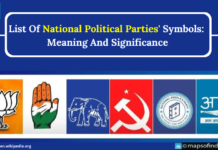I have always maintained that how we remember something collectively tells us more about who we are than what we remember per se. In the case of a historically significant figure like Babasaheb Ambedkar, this holds true even more.
Most of the nation remembers Dr. Ambedkar as the father of the Indian constitution. He is a figure revered, and rightly so. No one questions, again rightly so, the recognition given to him through the Bharat Ratna – the highest civillian award there is to give in the country. This is how we remember the great Dr. Ambedkar.
Yet, in an altogether different context, there exists another persona of the man. Few know him as a champion of the oppressed, fewer still know his own fight against social oppression and his rise to the highest ranks possible.
In a time and place where we take what is given to us for granted, there exists another India – the Dalit India who practically worships the man for all that he has done towards the upliftment of the Dalits. A Dalit himself, Dr. Ambedkar fought against the social injustice that accompanies someone considered (extremely wrongly in my opinion) of lower birth due to their caste. Fighting poverty and injustice as well as the discrimination that is faced by most of his caste, Dr. Ambedkar practically rose from the ashes to acquire degrees in law from Columbia and the London School of Economics, a far different place than home.
Yes, it’s true that he was the architect of the constitution of India and law minister under the first Independent Indian government, but we forget that he was so much more. We forget, for instance, his thirst for justice, his often referral to the French Revolution’s slogan of “liberty, equality, fraternity”, his debates with Mahatma Gandhi (now the subject of much scholarly attention) as several other things.
He was most of all, a founder of what we now call the Dalit movement, his championing social and educational reform helped many live their lives everyday in a better way. We owe so much as a society to the man and yet, what we acknowledge is only the writing of the constitution and at a stretch, the post of law minister that he occupied. We forget, in a hurry, the lessons imparted that have become the backdrop of the Dalit demand for English eduction, for instance.
All this makes for an interesting lesson in history. Not only is it important to see who we remember, but what and how we remember what we do, is also a need of the hour.



